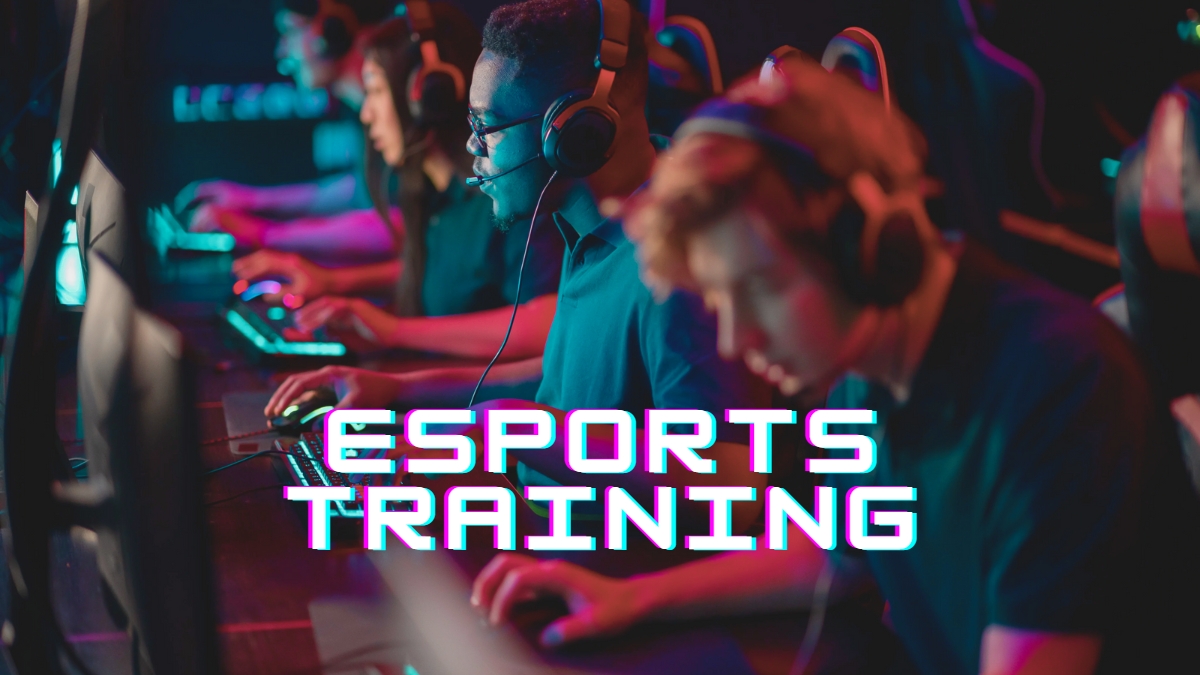
Level Up Your Game: Esports Training Tips for Gamers
The world of esports is fiercely competitive. Reaching the top requires more than just natural talent; it demands rigorous training, discipline, and a strategic approach to self-improvement. Whether you’re aspiring to join a professional team or simply aiming to dominate your ranked ladder, implementing a structured training regimen is crucial for maximizing your potential. This comprehensive guide provides esports training tips covering physical fitness, mental fortitude, in-game strategy, and team dynamics, helping you elevate your gaming performance to the next level.
I. Physical Fitness: The Foundation of Peak Performance
While esports might seem like a sedentary activity, physical fitness plays a surprisingly significant role in optimal performance. Prolonged periods of sitting can lead to fatigue, eye strain, carpal tunnel syndrome, and other health issues, directly impacting your focus and reaction time. Therefore, a robust physical fitness routine is paramount.
-
Ergonomics: Invest in a comfortable and ergonomically designed gaming setup. This includes a supportive chair, appropriately positioned monitor, and a keyboard and mouse that fit your hand size and posture. Regular breaks to stretch and move around are crucial to prevent stiffness and fatigue.
-
Regular Exercise: Engage in regular cardiovascular exercise, such as running, swimming, or cycling, to improve blood circulation, stamina, and overall physical health. Aim for at least 30 minutes of moderate-intensity exercise most days of the week.
-
Strength Training: Incorporate light strength training exercises to build muscle strength and endurance, enhancing your reaction time and hand-eye coordination. Focus on exercises that target your core, upper body, and wrists.
-
Sleep Hygiene: Prioritize quality sleep. Aim for 7-9 hours of uninterrupted sleep per night to allow your body and mind to recover and consolidate learning. A consistent sleep schedule is equally important for regulating your circadian rhythm.
-
Healthy Diet: Fuel your body with a balanced diet rich in fruits, vegetables, whole grains, and lean proteins. Avoid excessive sugar, processed foods, and caffeine, which can negatively impact your energy levels and focus. Stay hydrated by drinking plenty of water throughout the day.
II. Mental Fortitude: Mastering the Mind Game
Esports is as much a mental game as it is a physical one. Maintaining focus, managing stress, and adapting to pressure are crucial for success.
-
Mindfulness and Meditation: Practice mindfulness techniques or meditation to improve focus, reduce anxiety, and enhance mental clarity. Even short meditation sessions can significantly improve your ability to concentrate during intense gaming sessions.
-
Stress Management: Develop effective stress management strategies, such as deep breathing exercises, progressive muscle relaxation, or engaging in relaxing hobbies. Learning to manage stress effectively is crucial for maintaining composure under pressure.
-
Cognitive Training: Engage in cognitive training exercises to improve memory, reaction time, and problem-solving skills. Numerous brain training apps and online games are available to help you sharpen your mental acuity.
-
Mental Resilience: Develop mental resilience by learning to bounce back from setbacks and defeats. Analyze your mistakes, learn from them, and use them as motivation to improve. Avoid dwelling on negative outcomes; focus on the lessons learned and move forward.
-
Positive Self-Talk: Cultivate positive self-talk to maintain confidence and motivation. Replace negative thoughts with positive affirmations to build self-belief and enhance performance.
III. In-Game Strategy and Skill Development:
-
Game-Specific Training: Focus on developing in-game skills specific to your chosen game. This might involve practicing aim, map awareness, strategic decision-making, or team coordination. Utilize practice modes, custom games, or training tools to hone your skills.
-
Review and Analysis: Record your gameplay and review it critically to identify areas for improvement. Analyze your mistakes, successful plays, and overall game strategy. This self-assessment is crucial for targeted skill development.
-
Study Professional Players: Watch professional players and analyze their gameplay. Observe their strategies, decision-making processes, and overall game sense. Learning from the best can significantly improve your own skills.
-
Adaptability and Flexibility: Develop adaptability and flexibility to adjust your strategies based on the opponent’s actions and changing game situations. Rigidity in gameplay can be exploited, so learning to adapt is crucial for success.
-
Teamwork and Communication: If playing in a team-based game, practice effective communication and teamwork. Develop clear communication strategies, coordinate strategies, and support your teammates.
IV. Team Dynamics and Collaboration (for team-based games):
-
Team Communication: Establish clear and concise communication protocols within your team. Utilize voice chat effectively to coordinate strategies, share information, and provide feedback.
-
Team Roles and Responsibilities: Define clear roles and responsibilities for each team member. Understanding individual roles and working together efficiently is key to maximizing team performance.
-
Team Building: Engage in team-building activities to foster camaraderie, trust, and mutual respect within your team. Strong team dynamics are crucial for success in team-based esports.
-
Conflict Resolution: Develop strategies for resolving conflicts and disagreements within the team. Learning to handle conflict constructively is essential for maintaining a positive and productive team environment.
-
Consistent Practice: Maintain consistent practice sessions as a team to improve coordination, strategy, and overall team performance. Regular practice helps solidify team dynamics and build synergy.
V. Utilizing Resources and Technology:
-
Coaching: Consider seeking guidance from a professional esports coach. A coach can provide personalized feedback, identify areas for improvement, and develop a tailored training plan.
-
Analytics Tools: Utilize analytics tools to track your performance and identify key metrics. This data-driven approach can help you pinpoint strengths and weaknesses and inform your training regimen.
-
Community Engagement: Engage with the esports community through forums, online communities, and social media. Learning from others, sharing experiences, and collaborating with other players can be valuable for skill development and motivation.
By diligently following these esports training tips, you can significantly enhance your gaming skills, improve your mental fortitude, and elevate your performance to new heights. Remember that consistent effort, dedication, and a strategic approach are key to achieving success in the competitive world of esports. The journey to becoming a top-tier player is a marathon, not a sprint, so stay focused, persistent, and enjoy the process of continuous improvement.


.jpg)
